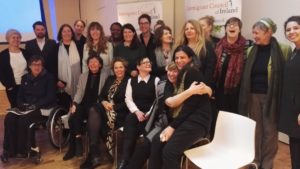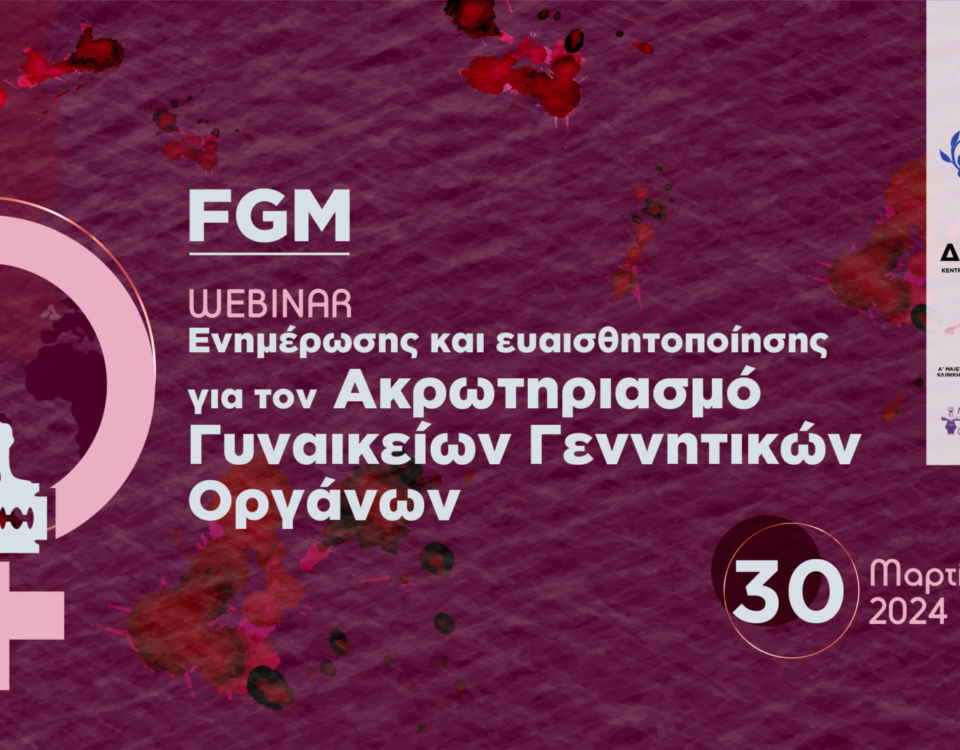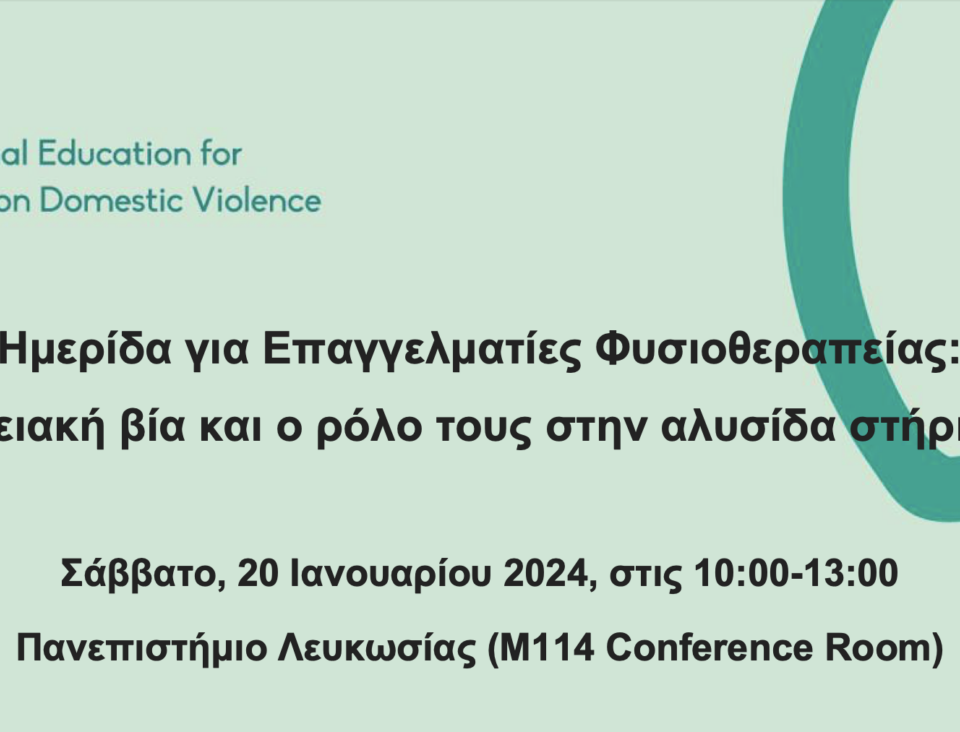Disrupt Demand – Study Examining Campaign Strategies in Member States to Introduce Legislative Measures to Discourage Demand for Sex Trafficking

Lecture, “Litigating for freedom, for power, for love: Strategies for global leaders”
February 20, 2017
GENDER-ED: Combatting Gender Stereotypes in Education and Career Guidance
March 10, 2017
The Mediterranean Institute of Gender Studies (MIGS) is a partner to the project entitled, "Disrupt Demand - Study examining campaign strategies in Member States to Introduce legislative measures to discourage demand for sex trafficking". This project is designed to support efforts to prevent human trafficking for sexual exploitation (TSE) by reducing demand, through researching successful strategies involving legal changes, and fostering cooperation among key stakeholders. Campaigns in the project countries, targeting demand by users of sex services, had major impacts on creating public awareness of sex trafficking, gaining a review of anti-trafficking laws and achieving strong legal models deterring that actions of users.
Coordinator: The Immigrant Council of Ireland (ICI)
Partners: Mediterranean Institute of Gender Studies, Cyprus (MIGS), Klaipeda Social and Psychological Services Center’s in Lithuania, Mouvement du Nid (MdN) in France, Institute for Feminism and Human Rights (IFHR) in Sweden, and Exit - off prostitution in Finland.
The objective of the project is to reduce demand fueling TSE, as a way of prevention, by mapping and researching legal changes to that effect, sharing information on successful campaigning elements that achieved the legal change, and resulted in activities that fostered cooperation among key stakeholders.
Key activities will include:
•Production of a comparative research report on the various approaches and campaigns for legal change targeting demand, based on 6 reports from participating countries;
•Working papers from 4 thematic discussions will inform the research on issues such as political engagement, public mobilisation, incorporating views of trafficking survivors and communications;
•Transnational working meetings will explore and identify best practice in two crucial areas, the NGO and law enforcement (LE) cooperation in countries with achieved legal change, and implementation frameworks to monitor effective application; and
•A robust dissemination of the product knowledge/products, coupled with wide internet/social media engagement activities will ensure visibility.
Beneficiaries:
•EU Member States, as organised crime will be affected by increased demand reduction, whereby potential buyers will be deterred and a lower number of people will be for sale;
•Potential victims, whose exploitation will be successfully prevented;
•NGOs and Governments, presently considering strategies from addressing demand in legislative terms, including civil society platform on Human Trafficking, EU Coordination office, EC Expert Group;
•Academia;
•General public, through media awareness; and
•Legislative implementation bodies in the six member states, such as law enforcement, decision and policy makers and legislators.
Finally, the Disrupt Demand project will be implemented by a partnership of 6 non-profit organisations 6 EU member states, and will last for 24 months.
Blog – 10/3/2017




